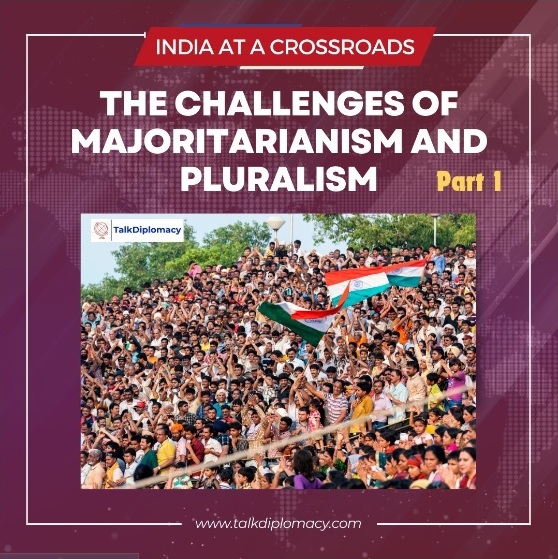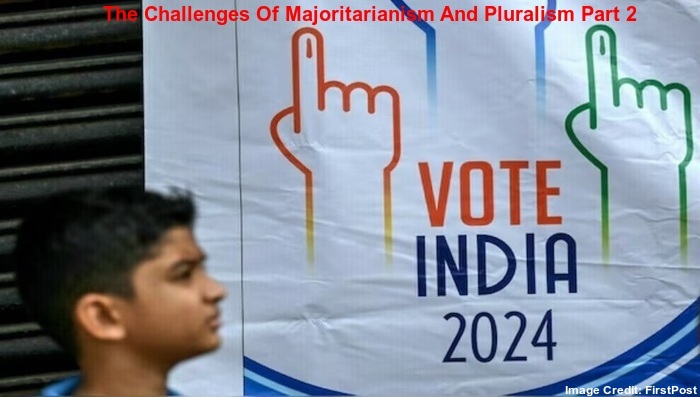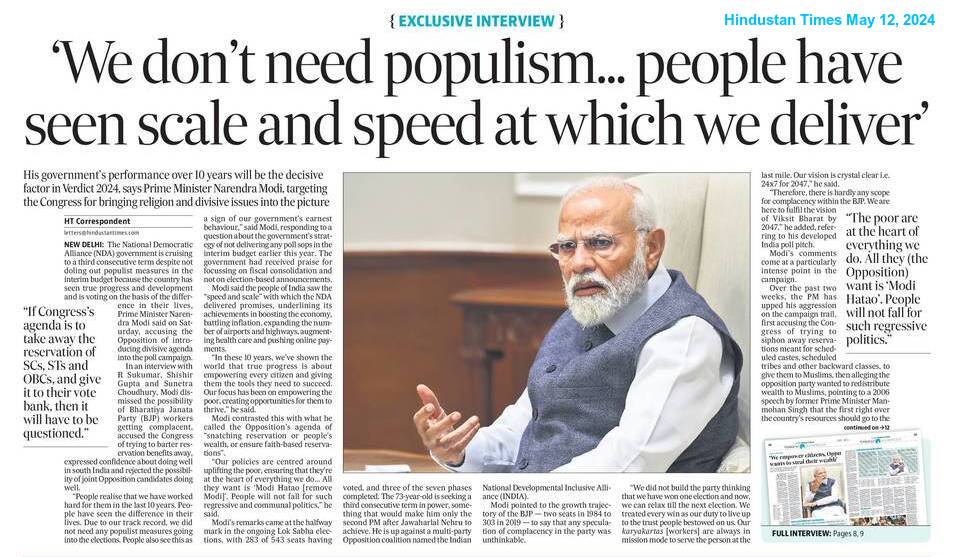Challenges Of Majoritarianism & Pluralism
With India standing on the brink of another pivotal electoral moment (as it is currently holding the 18th Parliamentary Elections in seven phases from April 19 to June 1, 2024), the South Asian nation finds itself at a crossroads, grappling with the complexities of identity, governance and pluralism. Under the leadership of Prime Minister Narendra Modi and his Bharatiya Janata Party (BJP), the country has witnessed a remarkable consolidation of power. Yet, this trajectory raises fundamental questions about the future of Indian nationhood.

The spectre of majoritarianism looms large, as concerns mount over the marginalisation of religious and linguistic minorities in a Hindu-majority South Asian nation. The parallels drawn with neighbouring Sri Lanka’s descent into conflict serve as a stark warning of the dangers posed by divisive politics rooted in religious and linguistic identity. The erosion of pluralism threatens to undermine the very fabric of Indian society, jeopardising the delicate balance of Rights and Freedoms that has defined the nation since its Independence. The BJP’s dominance has led to a centralisation of power, with Prime Minister Modi’s charisma and popular appeal further consolidating this trend.
Economic development under Modi’s leadership has been accompanied by environmental concerns and persistent inequalities. While there have been notable advancements in infrastructure and technology, the unthinking pursuit of Western models of industrialisation has come at a cost. Environmental degradation threatens the long-term sustainability of India’s growth, while economic disparities persist, exacerbating social tensions.

Despite the prospect of a third consecutive electoral victory for Modi and the BJP, the challenges facing India are daunting. The allure of triumphalism must not blind us to the deep fault lines that threaten to widen in the years to come. The erosion of pluralism and the concentration of power in the hands of one party and its leader pose significant risks to India’s Democratic Ideals and Social Cohesion.
In navigating these challenges, India must draw upon the wisdom of its founding figures, who nurtured a pluralist ethos that respected the rights of all citizens. The delicate balance between Individual Rights and State Authority, between the Centre and the Provinces, must be preserved if India is to remain united and democratic.

At its core, the struggle facing India is one between majoritarianism and pluralism, between consolidation and inclusion. As the nation prepares to cast its vote, it must confront these issues with courage and conviction. The path ahead is fraught with uncertainty, but it is also filled with opportunity. By reaffirming its commitment to pluralism and democratic principles, India can overcome the challenges that lie ahead and emerge stronger and more united than ever before.
In the end, the destiny of India rests in the hands of its people. It is they who must choose the path that their nation will take, guided by the principles of justice, equality and fraternity that have defined India’s journey thus far.
Talk Diplomacy published this article on May 12, 2024.
Boundless Ocean of Politics on Facebook
Boundless Ocean of Politics on Twitter
Boundless Ocean of Politics on Linkedin
Contact: kousdas@gmail.com

